It was the best of times, it was the worst of times for Fruits Basket 2019.
 Conflicted feelings are a big part of the Fruits Basket experience for me in just about every way. To begin with they’re an intrinsic part of the story (which I’ll get to shortly), and as I’ve already talked about, my formative experience with the 2001 version colors how I react to this one. But that has never been (and frankly never will be, I suspect) more true than it was this week. This week was everything about my mixed emotions distilled into one 22 minute episode.
Conflicted feelings are a big part of the Fruits Basket experience for me in just about every way. To begin with they’re an intrinsic part of the story (which I’ll get to shortly), and as I’ve already talked about, my formative experience with the 2001 version colors how I react to this one. But that has never been (and frankly never will be, I suspect) more true than it was this week. This week was everything about my mixed emotions distilled into one 22 minute episode.
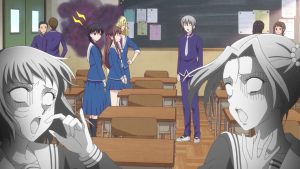 The gist of it is, sometimes original material is a good thing. Furuba certainly isn’t the first series to demonstrate this, but it’s one of the most powerful examples. This episode (which was actually #12) of the first show contained my favorite scene of the entire series, and even though I knew that scene wouldn’t be here in its original form (because it was an Akitarou Daichi contribution and as such, would be expunged with extreme prejudice), it still ripped my guts out to watch the onsen scene without that contribution. Nothing materially changes about the plot in its absence – the story is still in the same general place. But so much color and depth that was communicated by those 90 seconds is gone, and it’s those “at the margins” details that differentiate pretty good anime from great ones.
The gist of it is, sometimes original material is a good thing. Furuba certainly isn’t the first series to demonstrate this, but it’s one of the most powerful examples. This episode (which was actually #12) of the first show contained my favorite scene of the entire series, and even though I knew that scene wouldn’t be here in its original form (because it was an Akitarou Daichi contribution and as such, would be expunged with extreme prejudice), it still ripped my guts out to watch the onsen scene without that contribution. Nothing materially changes about the plot in its absence – the story is still in the same general place. But so much color and depth that was communicated by those 90 seconds is gone, and it’s those “at the margins” details that differentiate pretty good anime from great ones.
 Be that as it may, this was still a perfectly competent adaptation of some of the most important early material in the manga. It begins to provide answers to the question “why is Momiji the best character in Fruits Basket?” – though it’s really just the tip of the iceberg. Without drifting towards spoiler territory I think I can say that it’s because Fruits Basket at its best, to me, is all about those mixed feelings – the juxtaposition of cute and genki with melancholy and even terrifying. And no character represents that like Momiji. The gap between the surface and what’s underneath is widest with him – he really is that iceberg metaphor personified.
Be that as it may, this was still a perfectly competent adaptation of some of the most important early material in the manga. It begins to provide answers to the question “why is Momiji the best character in Fruits Basket?” – though it’s really just the tip of the iceberg. Without drifting towards spoiler territory I think I can say that it’s because Fruits Basket at its best, to me, is all about those mixed feelings – the juxtaposition of cute and genki with melancholy and even terrifying. And no character represents that like Momiji. The gap between the surface and what’s underneath is widest with him – he really is that iceberg metaphor personified.
 That’s also why, perhaps, Honda isn’t quite as compelling as she could be – this dichotomy doesn’t exist with her. Take the story Momiji tells of the book his classmate brought to school which contained the story, “The Most Foolish Traveler in the World”. Well, this is pretty grim stuff – especially for a book called “Funny Stories”. But it’s telling in that the parallel to Honda is as subtle as a kick in the shins – there’s no subtlety to that. But that Momiji tells it at all – and how he tells it, and what he feels about it – has significance in ways unrelated to Honda directly that are subtle.
That’s also why, perhaps, Honda isn’t quite as compelling as she could be – this dichotomy doesn’t exist with her. Take the story Momiji tells of the book his classmate brought to school which contained the story, “The Most Foolish Traveler in the World”. Well, this is pretty grim stuff – especially for a book called “Funny Stories”. But it’s telling in that the parallel to Honda is as subtle as a kick in the shins – there’s no subtlety to that. But that Momiji tells it at all – and how he tells it, and what he feels about it – has significance in ways unrelated to Honda directly that are subtle.
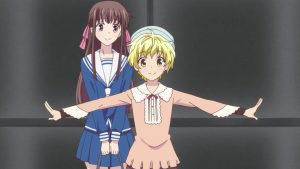 The driver of events here is Momiji’s White Day invitation to Honda – a trip to the Sohma onsen. In the most superficial sense, of course, there’s a dichotomy with Momiji too – that is, when he says he wants to bathe with her (denied – but not by her) and sleep with her (mission complete), well – it’s not quite as innocent as it seems. But maybe it’s not quite as naughty as it seems either. Momiji may be – to Honda’s shock – about to enter high school, but the persona he projects is not entirely just a persona. There’s a conflict there, not just between his age and appearance but between the person he really is and the one life pushes him to be.
The driver of events here is Momiji’s White Day invitation to Honda – a trip to the Sohma onsen. In the most superficial sense, of course, there’s a dichotomy with Momiji too – that is, when he says he wants to bathe with her (denied – but not by her) and sleep with her (mission complete), well – it’s not quite as innocent as it seems. But maybe it’s not quite as naughty as it seems either. Momiji may be – to Honda’s shock – about to enter high school, but the persona he projects is not entirely just a persona. There’s a conflict there, not just between his age and appearance but between the person he really is and the one life pushes him to be.
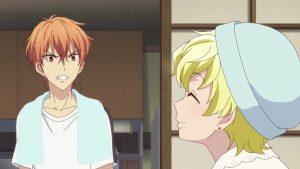 The events at the inn itself are robbed of most of their soul by the omitted material from the 2001 anime, unfortunately, but they’re not unimportant – we learn of another Zodiac to come, Ritchan (the innkeeper’s son – she’s another Soha split personality type). And we see a side of Yuki we’ve perhaps not seen before – unsurprisingly, teased out by Honda’s presence. He embraces his role as the bashful prince wholeheartedly, but Yuki’s hiding behind his projected image as much as anyone, and unsurprisingly he’s most interesting when he slips and lets a bit of himself see the light of day.
The events at the inn itself are robbed of most of their soul by the omitted material from the 2001 anime, unfortunately, but they’re not unimportant – we learn of another Zodiac to come, Ritchan (the innkeeper’s son – she’s another Soha split personality type). And we see a side of Yuki we’ve perhaps not seen before – unsurprisingly, teased out by Honda’s presence. He embraces his role as the bashful prince wholeheartedly, but Yuki’s hiding behind his projected image as much as anyone, and unsurprisingly he’s most interesting when he slips and lets a bit of himself see the light of day.


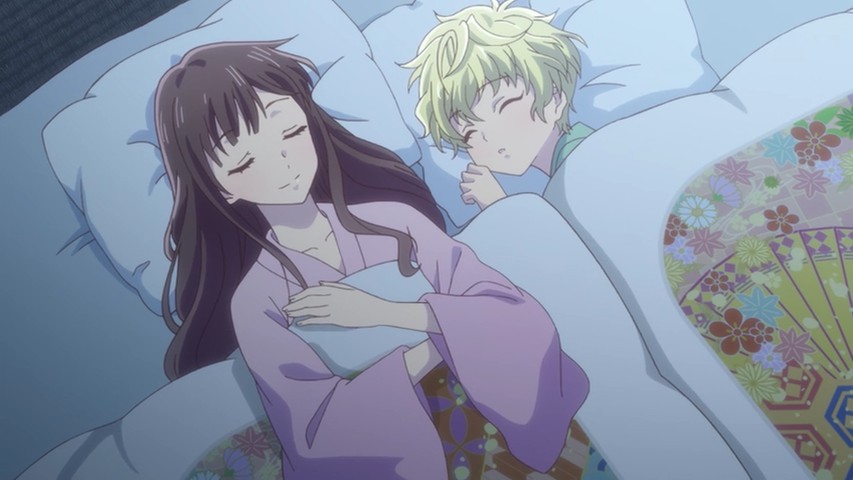

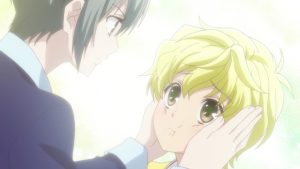

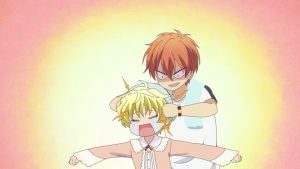
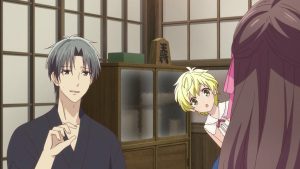
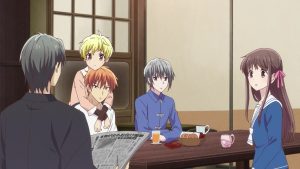
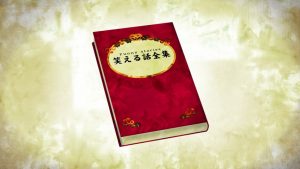


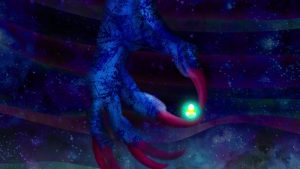
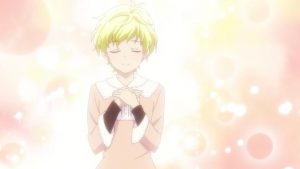
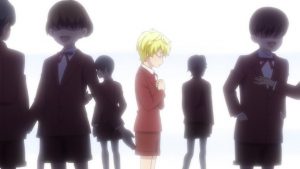
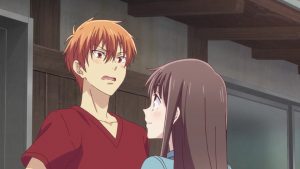
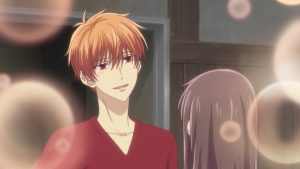
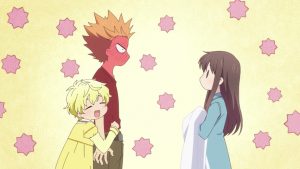

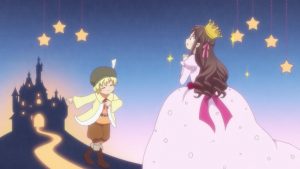
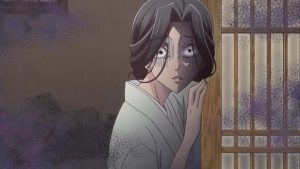


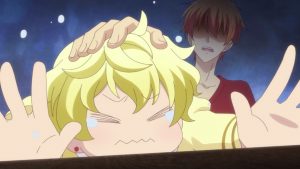

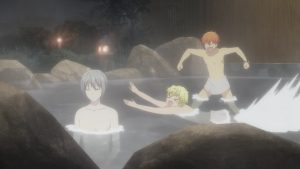
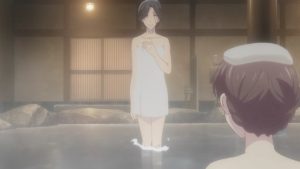
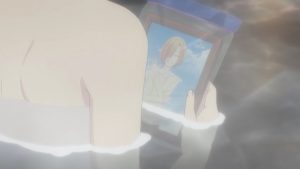
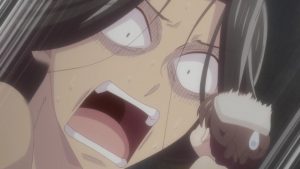

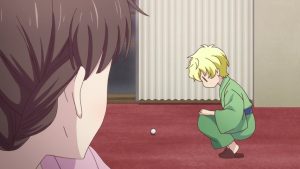
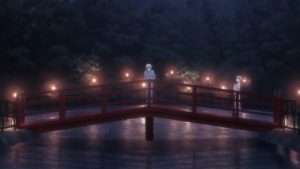
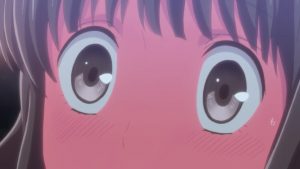
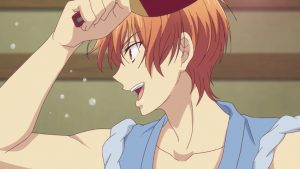
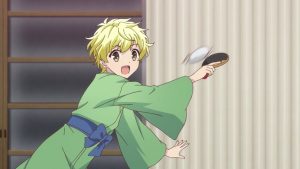
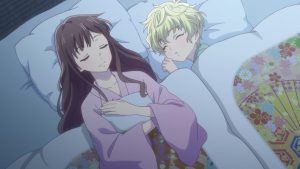


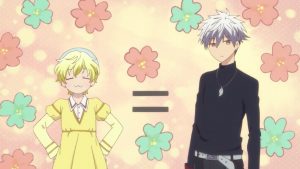
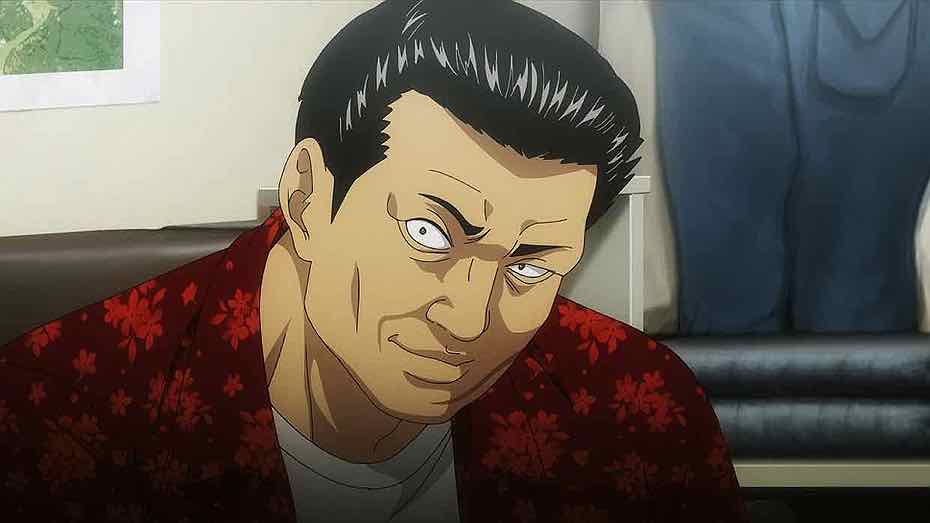
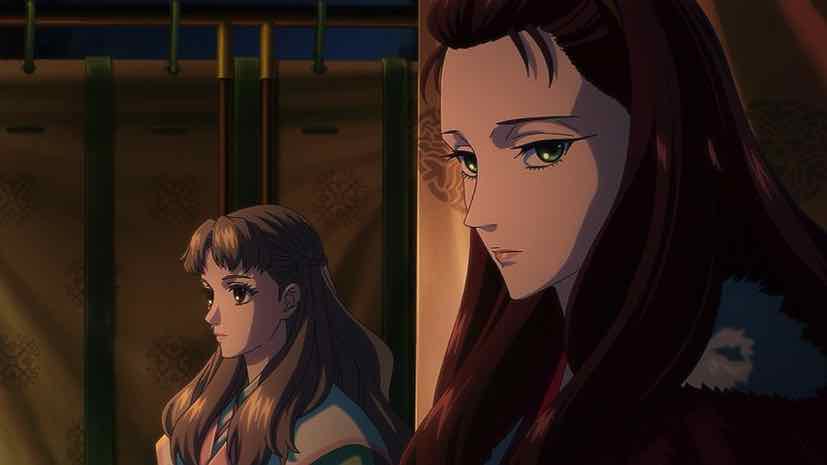
Gracie
June 15, 2019 at 5:24 pmThe tempo is so messed up. Momiji’s high-school reveal was hilarious in the original, but here it’s just flat. Same when Arisa and Saki went to the boys’ home to check Honda’s living conditions and there were all those lol moments with the boys accidentally transforming, but in the new version, they just had a generic sleepover. Oh right, we’re not allowed to laugh in this one.
Guardian Enzo
June 15, 2019 at 6:23 pmI decided re-watching any of the first series would be a bad idea, but this episode (originally 12) was special so I indulged myself. What a difference, I hate to say – really night and day.
DP
June 15, 2019 at 9:15 pmI would give anything to have Ikuhara directing this show rather than the stultifyingly abstruse Sarazanmai.
leongsh
June 15, 2019 at 10:43 pmIf Ikuhara was brought in to direct it, he would make the mangaka angrier than Akitaroh ever did. The mangaka wants an exact anime adaptation of the manga. Thus, how good it is depends largely on the manga material. What we are seeing now is that the manga material is not working well in being strictly adapted into anime.
TheYepMan
June 15, 2019 at 11:01 pmHard disagree. Not only because I consider Sarazanmai to be one of the best shows I’ve watched (as they air) in quite a while, but also because I don’t see anything that would pique Ikuhara’s interest in Fruits Basket – and it’s certainly not a work that would lend itself to Ikuhara’s aesthetics easily either.
I’m much more glad that Ikuni is doing its own thing, even if/when I think it’s not for me (Yuri Kuma Arashi), because well… who else is going to be doing thaat sort of thing? Even the people who are heavily influenced by Ikuhara don’t quite get the way he does things and why he does them (Revue Starlight…), and even if Takaya-sensei understood what Ikuni would try to do with her manga, she’d probably try to have the whole thing cancelled before letting it see the light of day.
Christine
June 16, 2019 at 10:24 amI never thought of Momiji being one of the more interesting characters of the large, large cast–but it’s true! And you put your finger on, it really is that iceberg quality that makes him stand out.
I disagree a little regarding Tohru though; she has some very similar iceberg qualities herself! A lot of the cast does. The more I think about your iceberg comment, the more I realize that that’s a key theme of Fruits Basket, that people have whole lives and what we glimpse of them is really just on the surface.
(A lot to unpack, hope that didn’t sound too pedantic. But I love reading your reviews every week because they help me look at FB in a new way after years of nostalgia.)
Guardian Enzo
June 16, 2019 at 10:29 amI agree, the iceberg thing is definitely a recurring theme with this cast. And I do think Honda has it a bit, though a lot less than the best of the Sohma characters. And I think Momiji represents it the best.
aldeayeah
June 25, 2019 at 7:33 pmThe thing with Tohru is she’s way too good at not thinking about her own issues.
There’s a desperate quality to her character and how she clings to certain messages (stuff like “I’m so lucky”, “I should be happy”, “I must trust people”, basically her understanding of her mother’s teachings), but that never really gets explored.
To follow on what other commenters said, I think Ikuhara would have a field day with her.